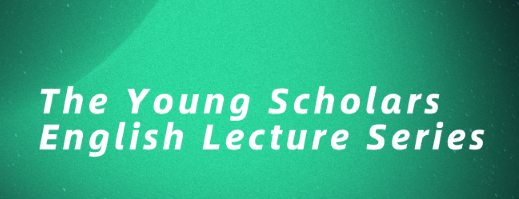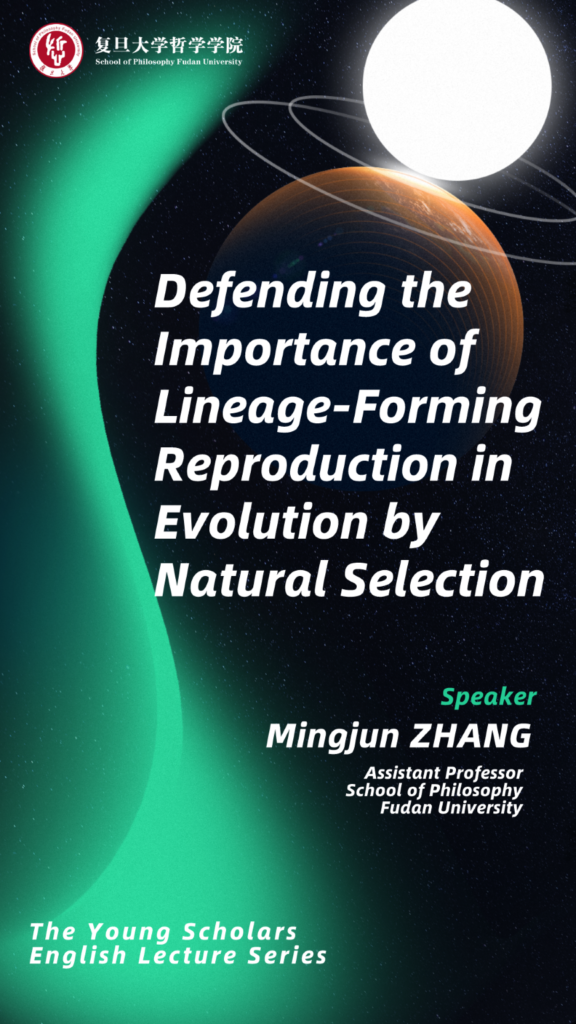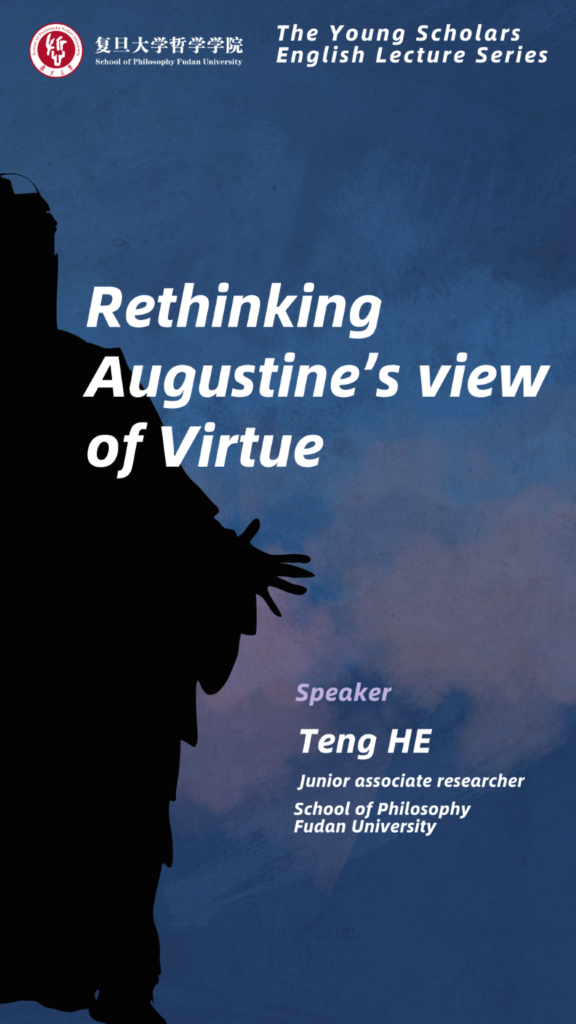


This is a new series of lectures introduced by the Philosophy School of Fudan University. Its primary aim is to provide a platform for young teachers to share ideas and present their recent working progress.
Lecture 1:
Speaker: Dr Teng He
Dr Ten He is a Junior associate researcher in the School of Philosophy at Fudan University. He received his PhD at University of Bonn at 2021. He works mainly in patristic Philosophy and medieval philosophy. He has published several articles in Journals such as Logos and Pneuma: Chinese Journal of Theology, Sino-Christian Studies, and Religions.
Content: This paper presents Augustine’s critique and transformation of the Stoic perspective on virtue. A major focus of Augustine’s assessment is the Stoic notion of self-sufficiency and virtue as the ultimate good. By introducing and developing the concept of love, Augustine reshapes the earthly and eschatological virtues within a Neoplatonic framework that organizes virtues hierarchically. Virtue is no longer considered solely a disposition of the soul, but rather one whose underlying motives and orientations determine its rightness. Grounded in the idea of love, Augustine contends that properly ordered love can contribute to happiness in this life. In a word, virtue is also self-sufficient in this life, but only when received as love from God.
Lecture 2:
Speaker: Dr Zhang
Dr Mingjun Zhang is an assistant professor in the Department of Philosophy of Science and Logic, School of Philosophy, Fudan University. He obtained his PhD from the University of Pennsylvania under the supervision of Michael Weisberg, and was trained as a philosopher of biology. His recent work concerns a wide range of topics in the philosophy of biology (including the debates about adaptationism, the nature of natural selection, modelling and explanations in biology) and philosophical issues in evolutionary game theory. He has published several articles in esteemed journals of philosophy of science, including Biology & Philosophy, Studies in History and Philosophy of Science, and Public Understanding of Science.
Content:
Charbonneau (2014) and Papale (2021) challenge the necessity of reproduction for evolution by natural selection (ENS) by contending that what really matter for ENS are memory and (re)generation at the population level, rather than lineage-forming reproduction at the local level. In this article, we critically evaluate their reproduction-independent accounts of ENS and defend the importance of lineage-forming reproduction in paradigmatic ENS on both empirical and theoretical grounds. We argue that none of the empirical cases cited by them can demonstrate the existence of paradigmatic ENS without lineage-forming reproduction, and adopting their reproduction-independent accounts of ENS would lead to a series of conceptual and methodological problems.


